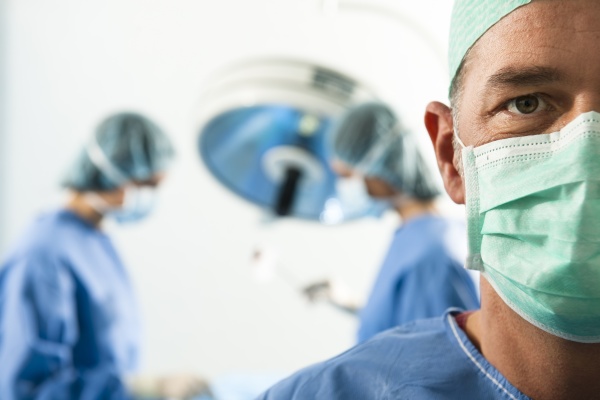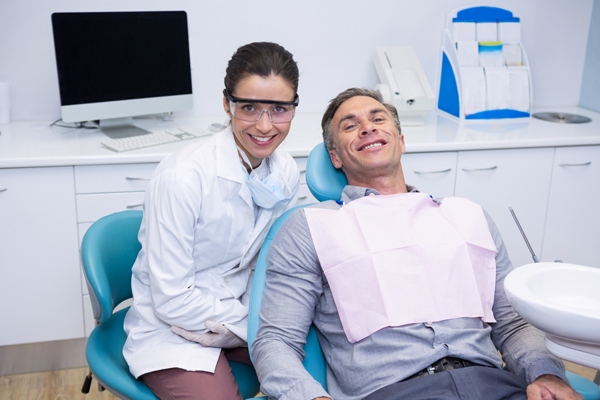What You Can Eat and Drink After Oral Surgery

Common oral surgery procedures such as tooth extraction, wisdom tooth removal, and the fitting of dental implants require you to watch what you eat and drink after the surgery — but choosing the right food and drink can be a challenging task.
Since you might be temporarily incapacitated after your oral surgery procedure due to anesthesia, it is possible you will not be able to drive or travel to buy food. Be sure to prepare ahead of time by purchasing foods that you will be able to eat in the days, and sometimes weeks, after surgery. Although your oral surgeon will take you through the basic foods and beverages you are allowed to consume, consider this guide as a checklist of what to eat and, more importantly, what not to eat.
Drink water
Staying hydrated is crucial after any major or minor surgery. Sip on a little more water than your normal daily amount to flush food particles away from the affected area. Drinking fluids following oral surgery will also speed up the healing process and help to prevent conditions like dry socket.
However, when drinking liquids, do so by sipping on a cup or bottle. Do not use a straw, as the suction could dislodge any dressings on the wound.
Foods to eat
Dentists recommend soft foods that are easily ingestible. These include:
- Creamy soups and broths
- Applesauce
- Smoothies
- Ice cream
- Mashed potatoes and other vegetables
- Yogurt
- Avocado
- Scrambled Eggs
Smoothies
Although smoothies are a great option for your recovery period, steer clear of blending fruits with small seeds. Blackberries and strawberries have seeds that can get stuck in open wounds and cause complications. Also, consider adding protein powder to smoothies for a nutritional boost.
Mashed vegetables
Mashed vegetables such as peas, carrots and butternut squash are a soft and nutritious substitute for carbohydrate-heavy mashed potatoes.
Yogurt
Greek yogurt is a healthy food that is high in protein. The protein kicks your recovery into high gear and aids in healing. It is also a great source of vitamins and minerals like zinc and calcium.
Foods and beverages to avoid
- Alcohol
- Crunchy food
- Popcorn
- Rice
- Spicy foods which can aggravate the wound
Alcohol
The consumption of alcoholic beverages is usually prohibited following any procedure. Alcohol can interfere with postoperative medication and can cause dehydration, which in turn slows the healing process.
Rice
Grains like rice can get wedged into the wound, much like the small seeds in strawberries. If you are craving carbohydrates, go with a softer option like macaroni and cheese.
The bottom line
After oral surgery, you will need to choose foods that are soft, packed with protein and rich in nutrients. Drink lots of water, and try to avoid beverages that will dehydrate you. Certain salty foods can cause dehydration as well, so steer clear of foods that are high in sodium. Prepare for oral surgery by stocking your kitchen with these foods, and plenty of water, to make sure your recovery goes smoothly.
Request an appointment here: https://www.carlosesanchezdds.com or call Carlos E. Sanchez, DDS at (209) 690-1118 for an appointment in our Tracy office.
Check out what others are saying about our dental services on Yelp: Oral Surgery.
Related Posts
Understanding the types of dental procedures that a general dentist can perform is a great idea. This lets you know what procedures will require a referral to see another type of dental professional. In addition, general dentists must earn either a Doctor of Dental Surgery (DDS) or Doctor of Dental Medicine (DMD) degree, which allows…
Your smile is often one of the first things that other people notice about you. A smile makeover offers an effective way for you to transform it into the one you can proudly show off. This treatment process provides multiple benefits, from correcting minor cosmetic issues to a complete overhaul. Here are five reasons to…
Same day dentistry is a fairly new method for restoring teeth that have moderate or even severe damage. The restorations can bring your smile back to good function and health and eliminate any decay. The restoration can also be completed in just one day. Keep reading to find out more about getting a natural crown,…
Good oral health habits early in life are critical for a child's overall well-being. Pediatric dentists offer comprehensive care designed to meet the unique needs of children, such as higher tooth decay risk. This sets a strong foundation for a lifetime of healthy smiles. From their expertise in children's dental development to their kid-friendly approach,…


